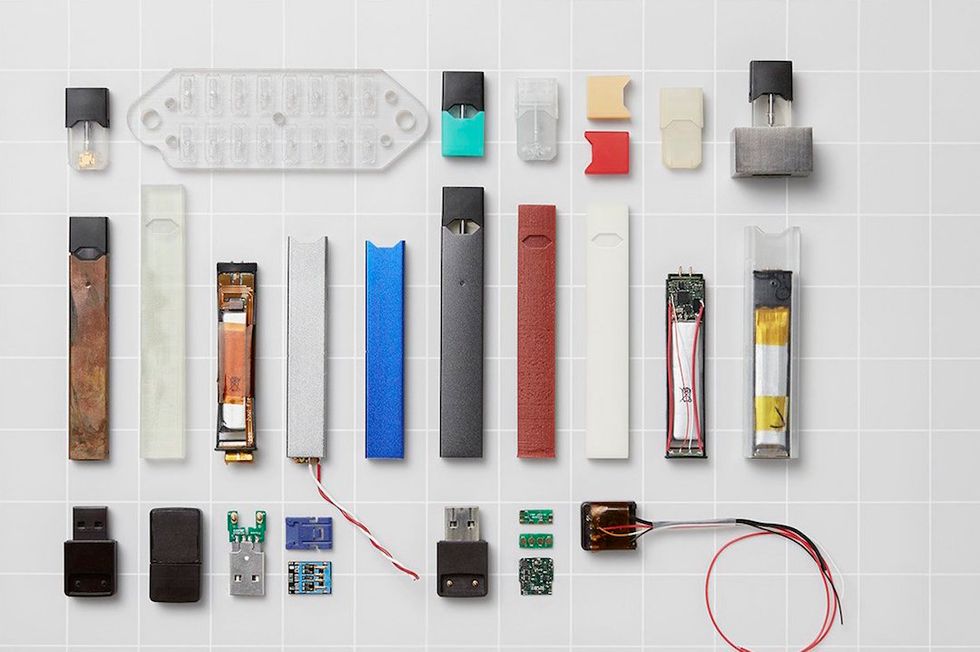Vaping has long been considered a socially painful alternative to smoking. Not anymore. The JUUL vaporizer is the newest trend in vaping and has taken both high school and college markets by storm.
The JUUL was created by PAX Labs, a cannabis vaporizer company, in 2015. Their cannabis history is one that they gloss over in their website, but their rise to the top was unsurprising once they developed one of very few user-friendly options for vaping.
According to Business Insider as of November 2017, over 1 million JUULs have sold. The company has generated over $224 million in retail sales and commanded over 32 percent of the marketplace. These numbers have risen since then, with reports saying that JUULs now own closer to 50 percent of the marketplace.
A JUUL is often marketed as a solution for cigarette addiction and a “smoking alternative,” but in recent months has become a gateway device into smoking. People that have never before smoked a cigarette are now hopping on to the JUUL train, given its ease of use and accessibility.
Not only is the nicotine high more potent than a cigarette, but there is no smoke smell, easier usage, and it's marketed as healthier and safer despite little market research having been done on vaping. Vapes like the JUUL also have very little regulation by the FDA, despite a single JUUL pod containing as much nicotine as 28 cigarettes.
JUUL users often report going through a pod a week, though for many users it can be as much as a pod a day.
The accessibility of JUULing and ability to smoke anywhere greatly increases the rates of usage. Where smoking a cigarette used to only be something you could do between classes or on a lunch break, JUULs can often be smoked inside discreetly, not breaking the social norm.
Ironically the potency and availability of JUULs actually make smoking cigarettes a viable alternative to quitting these vapes. This has turned JUULs into a nicotine gateway device. To add to the fire, the FDA is moving to regulate nicotine levels in cigarettes for the first time ever, but these JUULs and similar vaping devices will remain unregulated in the hands of Americans.






















